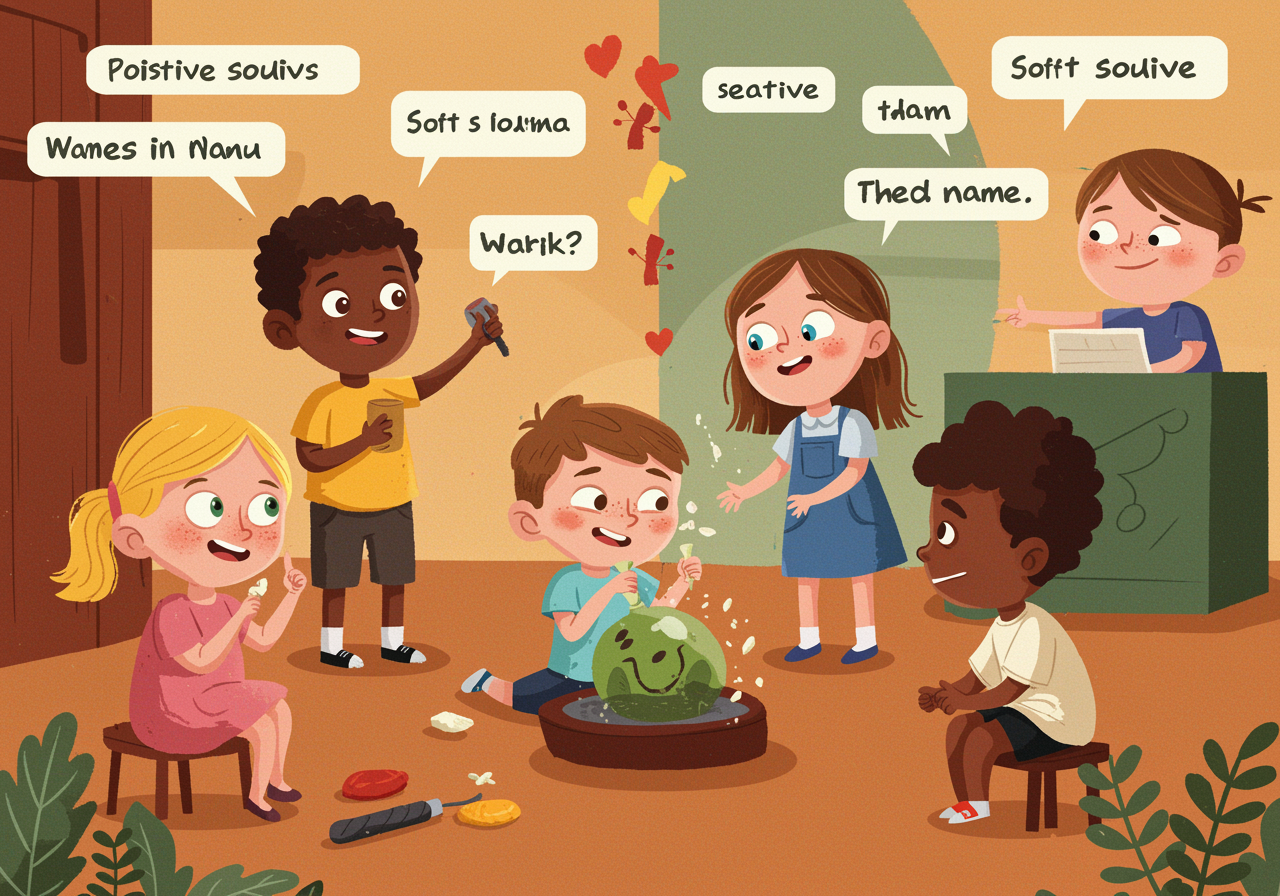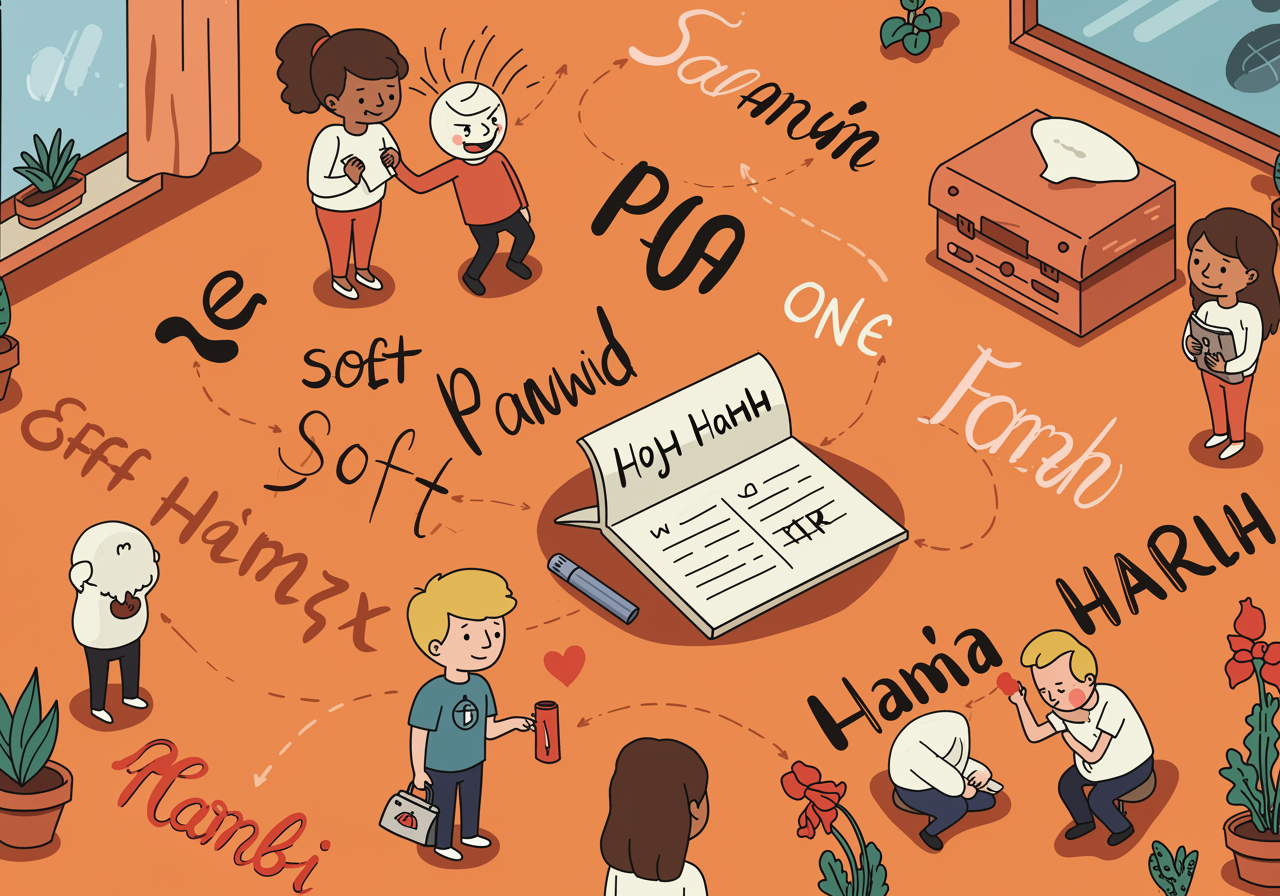The Secret Science of Names: Why Some Sound Sweet and Others Sound Sharp

Discover the hidden psychology behind why certain names make us smile while others make us squirm
Dive into the fascinating world of name psychology and uncover why your brain reacts differently to different sounds, letters, and cultural associations.
Overview
Have you ever met someone whose name just felt 'right' for them, or heard a name that made you wrinkle your nose? There's actually science behind these reactions! Our brains are constantly processing the sounds, rhythms, and associations of names, creating instant emotional responses we're often not even aware of. Understanding why names affect us this way helps us appreciate the incredible complexity of human communication and can make us more thoughtful about the assumptions we make about others. Plus, it's a perfect excuse to geek out about the hidden patterns all around us!

Understand in 30 Seconds
Get up to speed quickly
- Sound Shapes Feelings: Soft sounds like 'L' and 'M' often feel gentle, while hard consonants like 'K' and 'T' can feel sharp or strong to our brains.
- Memory Makes Meaning: Your past experiences with people who have certain names heavily influence how those names make you feel today.
- Culture Colors Perception: Names from familiar cultures often feel 'warmer' while unfamiliar names might feel neutral or distant until we learn their stories.
- Media Molds Opinions: Characters in movies, books, and TV shows can completely change how we feel about certain names through their personalities and actions.
Real Life Scenario
Situations you can relate to
Imagine you're scrolling through a list of new classmates before school starts. You see names like 'Luna,' 'Max,' 'Kai,' and 'Bertha.' Notice how your brain immediately starts forming impressions? Luna might feel dreamy and soft because of the flowing 'L' sound and moon associations. Max could feel energetic with that punchy 'X' ending. Kai might sound modern and cool. But Bertha? You might picture someone older because that name was popular decades ago. Here's the wild part: these are just collections of letters and sounds! Your brain is the one adding all the emotional flavor based on the sounds you hear, people you've known, and characters you've seen in stories.

Role Play
Spark a conversation with “what if” scenarios
What if you had to pick a superhero name that sounded powerful and strong?
- Role play: Take turns creating superhero names using hard consonants like 'Thunder-Strike' or 'Iron-Bolt' and compare them to softer names like 'Moonbeam' or 'Gentle-Breeze.' Notice how the sounds change the feeling!
What if you were naming a new ice cream flavor and wanted it to sound delicious?
- Role play: Create ice cream names using pleasant-sounding combinations like 'Caramel Swirl' versus harsh ones like 'Crunch Crackle.' Test which names make your mouth water just from hearing them!
What if you could rename yourself for a day based purely on how the name sounds?
- Role play: Pick names that match different moods – maybe 'Zara' for when you feel adventurous or 'Sam' for when you feel friendly. Discuss how the sound of each name changes how you feel about yourself.
FAQs
Frequently asked questions people want to know
Do all people react to names the same way?
Not at all! Your personal experiences, culture, and language background all influence how names sound to you. What feels harsh to one person might sound strong and confident to another.
Can someone's name actually affect their personality?
Some studies suggest people might slightly adjust their behavior to match expectations about their names, but your name doesn't determine who you are – your choices and actions do that!
Why do some letters sound nicer than others?
Our brains associate certain sounds with physical sensations. Soft sounds like 'L' and 'M' remind us of gentle, flowing movements, while sharp sounds like 'K' and 'T' feel more sudden and direct.
Examples in the Wild
See how this works day to day
- Research shows that people with easier-to-pronounce names are often viewed more favorably in job applications and social situations. (Journal of Experimental Social Psychology, 2012)
- Hurricane names alternate between male and female, and studies found people evacuate differently based on whether the storm has a 'masculine' or 'feminine' sounding name. (National Academy of Sciences, 2014)
- Companies often test product names extensively because certain letter combinations can make products seem more premium, fun, or trustworthy to consumers. (Harvard Business Review, 2020)
- Name popularity follows predictable sound patterns – when names like 'Emma' and 'Ella' are popular, other names with similar sounds often rise in popularity too. (Social Security Administration name data analysis, 2023)
In Summary
What you should know before you start
- Your brain automatically assigns emotions to names based on their sounds, with soft consonants feeling gentle and hard consonants feeling strong
- Personal experiences with people who share certain names heavily influence how those names make you feel
- Cultural familiarity plays a huge role – names from your background often feel warmer and more trustworthy
- Media and pop culture constantly shape our associations with names through characters and stories we encounter
Pro-tip for Parents
You got this!
If your child makes comments about not liking someone's name, use it as a teaching moment about unconscious bias. Help them recognize that their reaction is about sound patterns and associations, not about the actual person. Encourage them to get to know people before forming opinions, and remind them that every name has a story and meaning that's important to someone's family and culture.

Keep an Eye Out For
Find these examples in everyday life
- Notice how names are chosen for characters in new movies or TV shows – directors deliberately pick names that match the personality they want you to feel
- Pay attention to product names when shopping – companies spend millions testing which combinations of sounds make you want to buy something
- Watch for news stories about name trends and what they reveal about cultural changes and generational differences
Explore Beyond
Look up these related research topics
- How do different languages create different emotional responses through their unique sounds and rhythms?
- What role does your voice tone and accent play in how others perceive you when you speak?
- How do colors, like names, trigger automatic emotional responses in our brains?